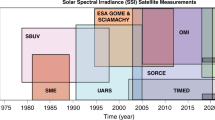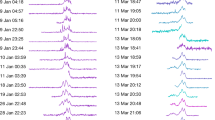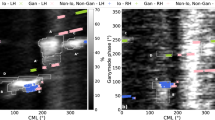Abstract
SINCE February this year, high-speed records have been obtained at a frequency of 200 Mc./sec. during solar radio noise storms. The equipment used for the registrations consists of a receiver with bandwidth of 0.3 Mc./sec. and time constant 0.01 sec. and a Brush recorder. Records were secured at various paper speeds, with a speed of 25 mm./sec. as that mostly used, since this speed seems to give the best compromise between the competing factors resolving power, amount of information and paper consumption.
This is a preview of subscription content, access via your institution
Access options
Subscribe to this journal
Receive 51 print issues and online access
$199.00 per year
only $3.90 per issue
Buy this article
- Purchase on Springer Link
- Instant access to full article PDF
Prices may be subject to local taxes which are calculated during checkout
Similar content being viewed by others
References
de Groot, T., Nature, 180, 382 (1957).
Reber, G., Nature, 175, 132 (1955).
Author information
Authors and Affiliations
Rights and permissions
About this article
Cite this article
ELGARÖY, Ö. Duration of Transients in Solar Radio Noise. Nature 180, 808–809 (1957). https://doi.org/10.1038/180808b0
Issue Date:
DOI: https://doi.org/10.1038/180808b0
This article is cited by
Comments
By submitting a comment you agree to abide by our Terms and Community Guidelines. If you find something abusive or that does not comply with our terms or guidelines please flag it as inappropriate.



